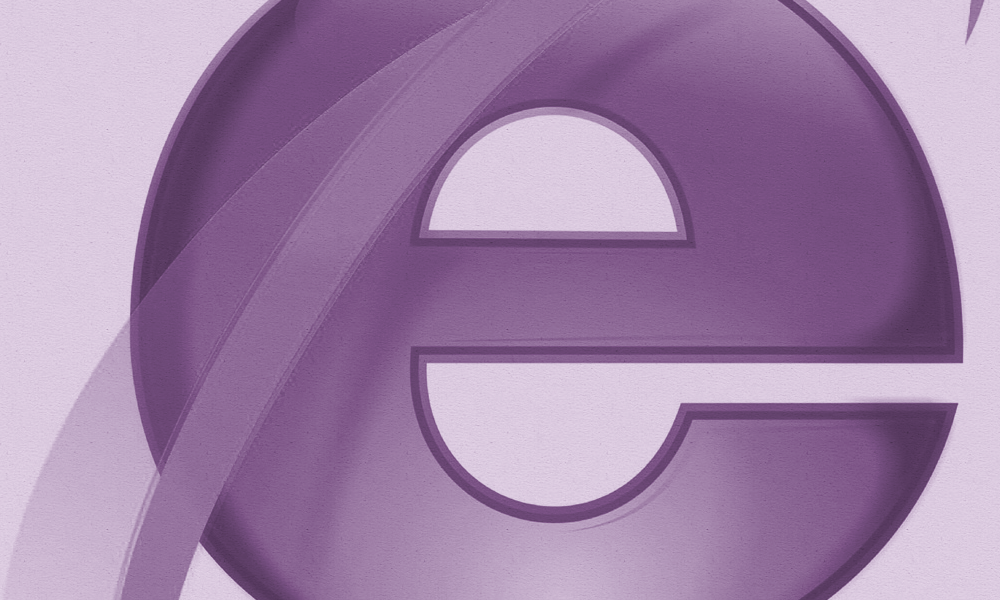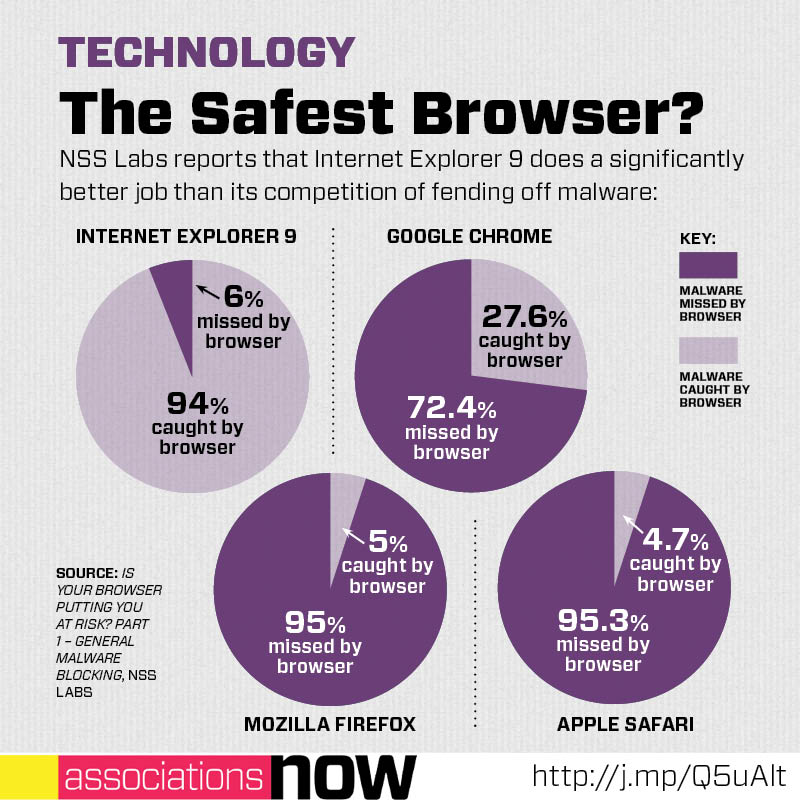
Study: Internet Explorer 9 Is the Safest Browser
The Microsoft browser is much better at discovering and blocking malware than its competitors, according to research.
IT staffs may want to take a second look at Internet Explorer.
A new study by NSS Labs calls Internet Explorer 9 (IE9) the safest browser by a wide margin, claiming it has much better safeguards than its three main competitors — Google Chrome, Mozilla Firefox, and Apple Safari.
Ultimately, the results reveal significant variations in the abilities of the browsers to protect against malware.
The study, which used a Windows 7 virtual machine with consistent credentials — 2 gigabytes of RAM and a 40GB hard drive — tested the browsers’ abilities to recognize a malware link.
In the case of IE9, which uses a cloud-based technology called SmartScreen to recognize malicious links, the browser generally recognized 91 percent of links as malicious within a day of the link going online. Google’s Chrome, which includes the ability to recognize malicious downloads, was second-best, at 20 percent. Firefox and Safari, however, recognized just 4 percent to 5 percent after a day — a number that stayed stubbornly consistent after a month of testing.
While Firefox and Safari stayed relatively flat after a month, IE9 reached 94 percent, and Chrome, 28 percent. Check the graphic below for more info:

Why such low numbers for Chrome, Firefox, and Safari? Well, the three browsers each use Google’s Safe Browsing API, but only Chrome includes the latest version, which recognizes malicious downloads. If you take out that functionality, Chrome’s total is similar to Firefox and Safari.
“Ultimately, the results reveal significant variations in the abilities of the browsers to protect against malware,” according to the study, written by half a dozen authors at NSS Labs.
Now, to be clear, there are some weaknesses with the study. It accounted only for IE9, although IE8 is still in wide use because that browser is the latest version available for Windows XP. This will remain an issue with the upcoming IE10, which only supports the soon-to-be-released Windows 8. The study also didn’t account for Apple’s Mac OSX, which IE doesn’t support.
You can read the full study on the NSS Labs website.






Comments